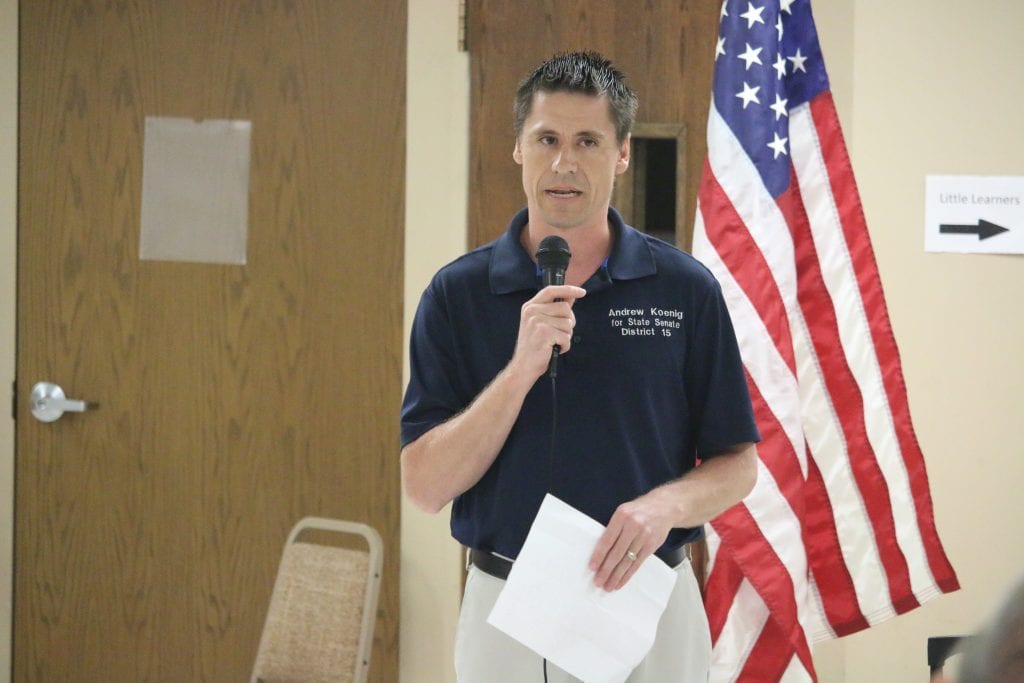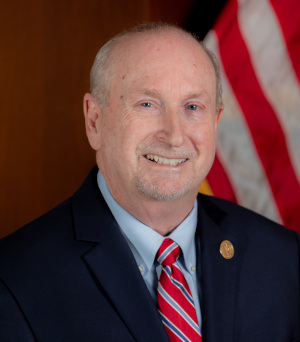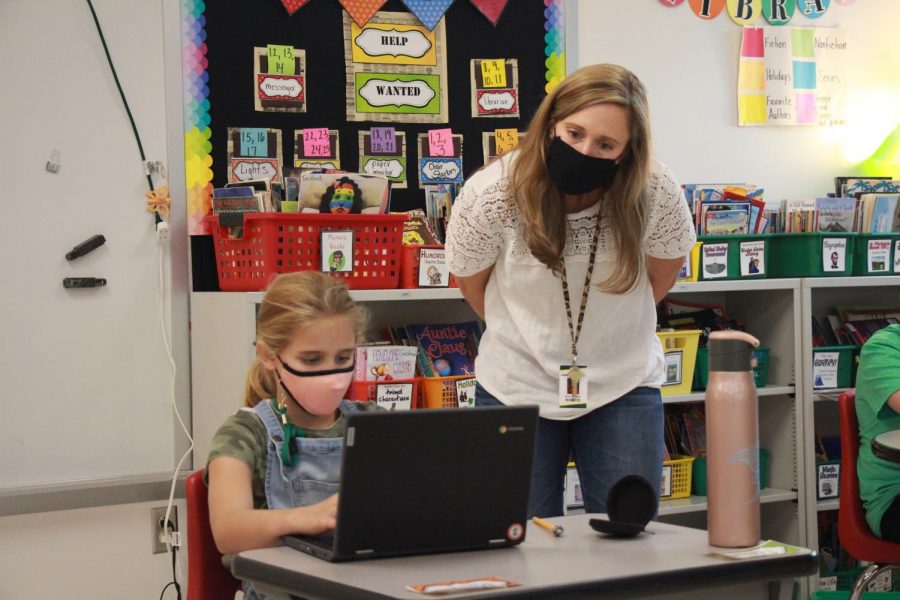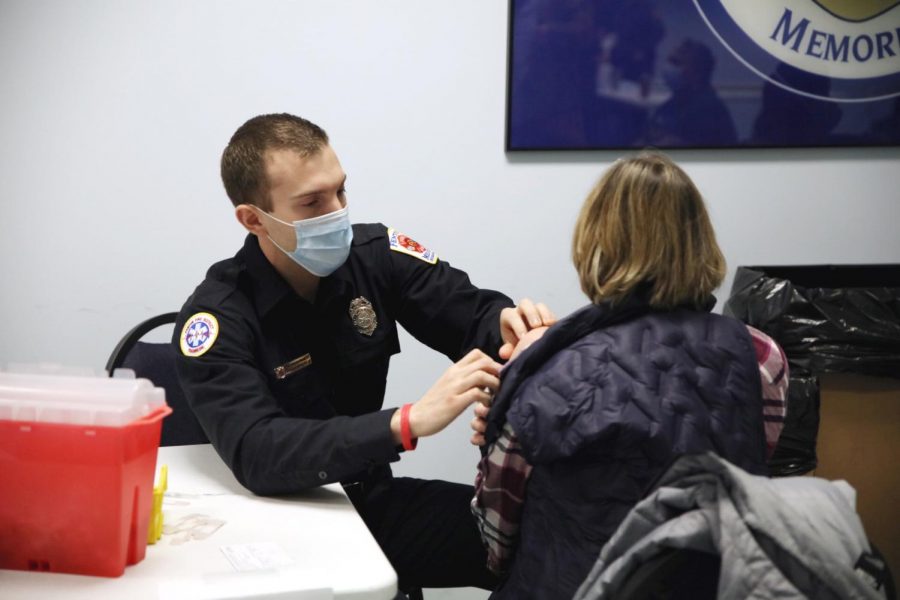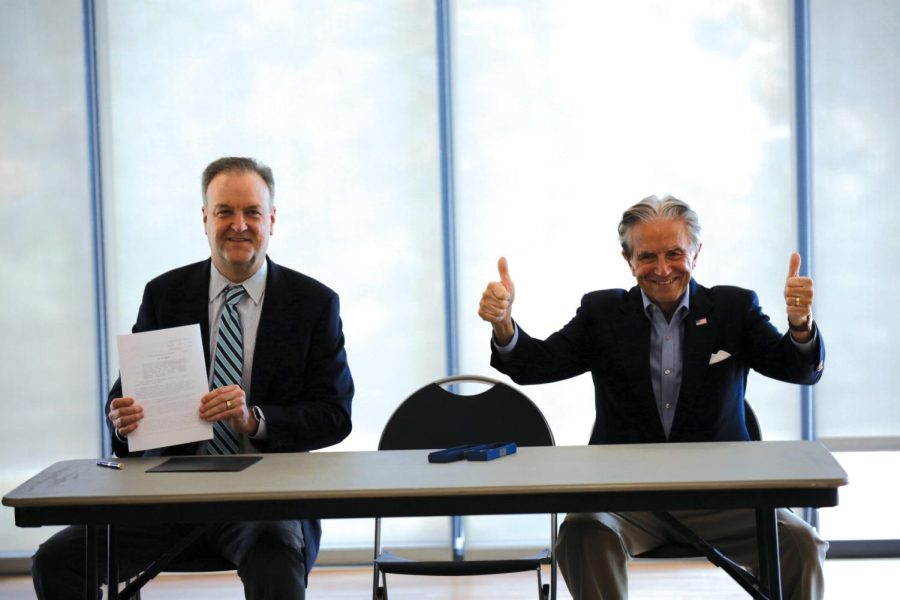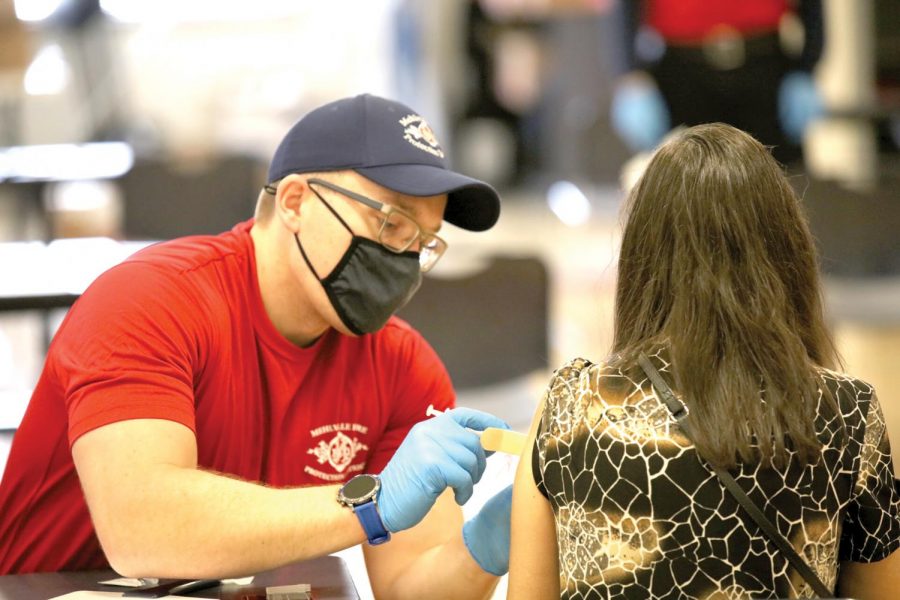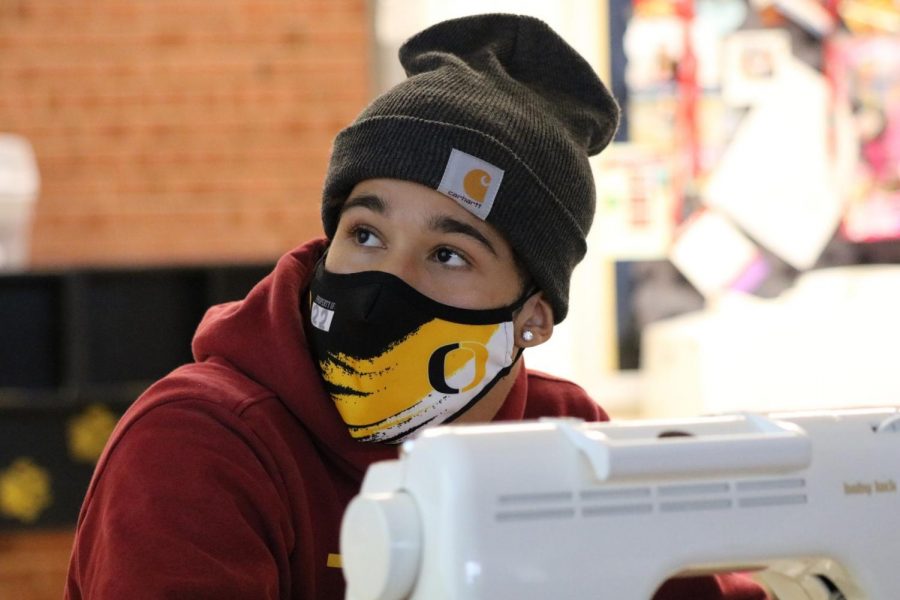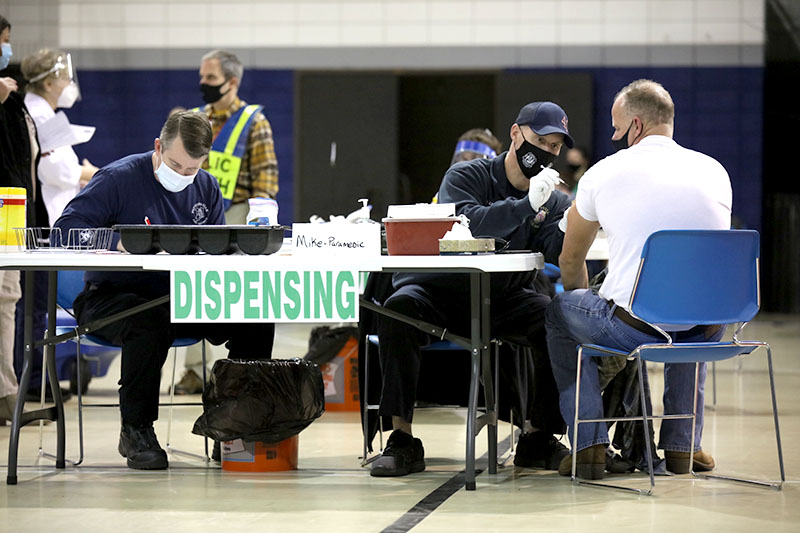On a nearly deserted floor, lawmaker by lawmaker, the Missouri House approved a $6.2 billion spending plan focused on COVID-19 relief through the end of June.
About $5.5 billion of that is federal funds, less than half of which have been promised to the state so far. Lawmakers expect it to start arriving later this month. They planned for billions extra in hopes of receiving more federal money.
“It’s one of the most important supplemental bills we’ve seen in the history of Missouri,” Rep. Kip Kendrick, D-Columbia, said.
If all of the hoped-for federal money arrives, the relief package will include:
- $1.5 billion for state agencies to use for immediate COVID-19 aid and relief efforts.
- $1 billion for local governments to use for pandemic response efforts.
- $300 million for public schools.
- $138.7 million for the University of Missouri system.
- $20 million in financial assistance for child-care providers.
The finalized budget increased dramatically from a proposition put forward only three weeks before. In the last House session, lawmakers debated a $413 million proposal.
The spending package passed the House and Senate with strong bipartisan support.
“The people across the state who are in need of relief don’t care about our partisan politics and the political divide,” said Rep. Cody Smith, R-Carthage and the House Budget Committee chairman. “Many have lost loved ones, lost jobs, are suffering repercussions they’ll be dealing with for years.”
In a message released after the passage of the legislation, Sen. Andrew Koenig, R-Manchester, said he believes the legislation “provides crucial funding to our state’s departments and agencies, and I am hopeful that these funds will be a ‘game changer’ when it comes to our state’s ability to respond to the COVID-19 crisis. Their services are vitally important for many Missourians, especially during these difficult times.”
Increased executive discretion
Some lawmakers expressed concern that the supplemental bill gives too much discretion to Gov. Mike Parson in terms of how to spend funds over the next three months before the end of the fiscal year.
Parson is a Republican, but it was not just Democrats who thought he might have too much authority over state money under the bill.
Sen. Bill Eigel, R-St. Charles, was one senator with concerns about the latitude afforded to the governor.
“The bill before us has a lot of uncertainty in it right now because we don’t know exactly how much we expect to get from the federal government,” Eigel said. “We don’t know exactly when that’s going to come in. And the governor’s request is asking for essentially a lot of leeway in how to manage those funds in the event that they come in.”
Sen. John Rizzo, D-Kansas City, acknowledged that the Senate was intentionally overappropriating funds in anticipation of additional federal funding and said the Legislature is putting a lot of faith in Parson by giving him ample flexibility to manage the COVID-19 pandemic.
“He does have more discretion than I think is normal, but we’re not in normal circumstances,” Rizzo said.
Senators made it clear that while they accepted authorizing the governor’s ability to allocate large amounts of funding in the short term, the same would not be agreed upon long term.
Sen. Caleb Rowden, R-Columbia, said he expects large amounts of the funding that was agreed on in the supplemental bill to be carried over to the 2021 fiscal year budget, where the legislative branch will have far more discretion over spending choices than the executive. The new budget year begins July 1.
“We provided a tremendous amount of latitude as it relates to the short term,” Rowden said, but he cautioned that the long-term conversation about where the money gets spent would look different.
Rowden explained that it is unlikely the Parson administration will be able to spend several billion dollars in the next three months, which will leave some of that money for the Legislature to allocate in the 2021 budget discussions.
“So I think there’s a good amount of that money that ends up getting reappropriated into the fiscal year ’21 budget,” Rowden said. “And I think that that really becomes kind of where the more robust conversation happens.”
Racial disparities
Rep. Maria Chappelle-Nadal, D-University City, brought up concerns that black communities could be left out of the funding distribution.
“In this bill there is no distribution methodology,” Chappelle-Nadal said, leaving room for corruption and favoritism.
Rep. Tommie Pierson Jr., D-St. Louis, pointed out health-care disparities that can place black Missourians at higher risk for the virus.
“The speculative reasons are many,” Pierson said. “Lack of a relationship with a primary care physician. Environmental racism and other social determinants of health … a higher likelihood of customer-facing occupations, where folks don’t have the luxury to stay at home. The possible reasons are many. What is clear is that these disparities are beginning to become more and more evident as we look at the numbers.”
Data released by Missouri’s Department of Health and Senior Services shows that 25 percent of confirmed COVID-19 patients in the state are black. The race of 30 percent of cases is unknown. The U.S. Census Bureau estimates black Missourians make up 11.8 percent of the population.
When it comes time to spend the money allocated in the supplemental budget, Pierson said, it’s important to consider those health disparities: “I believe it would be tragic if this information is not taken into consideration when it becomes time to spend this money.”
Session’s future
Lawmakers seemed split on whether the 2021 legislative session would be able to resume for non-coronavirus related lawmaking, and the plans for the 2021 budget remain unknown.
Rowden seemed confident lawmakers would be back before May 15, the last day of the session.
“I don’t know when, and I don’t know what we’re doing once we come back,” Rowden said, “but I do think we come back. I think there are things that we need to get done, obviously the budget being one item.”
In contrast, Rizzo said it would be irresponsible to bring lawmakers back for anything unrelated to battling COVID-19. He said he thought it was widely known that the governor is looking at a special session for the budget sometime in June, hopefully once virus concerns have passed.
“If we were to come back for anything other than coronavirus related legislation, you are really putting people in a position where they’re trying to make decisions on their health or policy,” Rizzo said, pointing out that many legislators would have good health reasons for staying away from the Capitol.
Rizzo noted that a legislator’s absence would leave entire districts without representation.
The constitutional deadline for passing a fiscal year 2021 budget is May 8, and Rowden said it was still possible for the state to meet the deadline. He added, however, that if the deadline is missed, the consequences are not extreme.
“I think, as best we can tell — and obviously, we’re operating in some uncharted territory — but I think if we get a budget done by the close of the fiscal year (June 30) and the beginning of the new fiscal year, I think we’re okay,” Rowden said.
Kendrick said it will be important for lawmakers to reevaluate revenue estimates for the coming year in light of decreased sales tax but said as of now there is no plan for when that will happen.
Jordan Meier and Maria Benevento contributed to this report.



